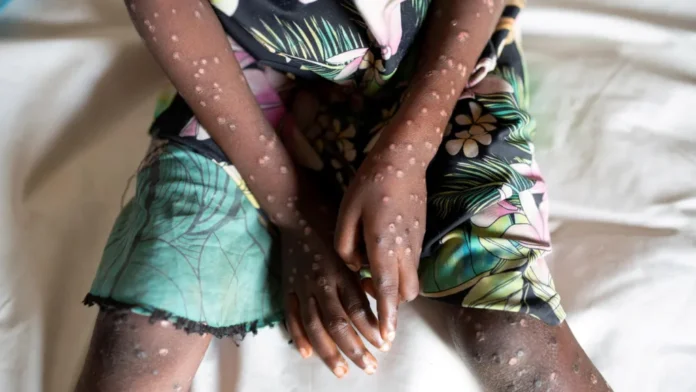
PORT OF SPAIN, Trinidad (CMC) — The Caribbean Public Health Agency (CARPHA) has called on member states to be vigilant against the mpox virus outbreak after the World Health Organization (WHO) last week declared the virus a public health emergency of international concern (PHEIC).
In a statement, CARPHA, which said it has established a testing capacity for the virus with a turnaround time of 72 hours, said the current outbreak of mpox is caused by clade I, which is more transmissible and causes more severe illness.
It said Clade II was responsible for an outbreak that WHO declared to be a global health emergency from July 2022 to May 2023.
“Presently, no cases of clade 1b mpox have been reported in the Caribbean and its neighbouring countries, including the US, UK, Canada, and Latin America. There is also a limited number of travelers and no direct commercial flights from the DRC or its neighbouring countries to the Caribbean.”
CARPHA’s interim Executive Director, Dr Lisa Indar, said the current risk to the Caribbean population from mpox clade 1b is low to moderate, as no cases of mpox have been identified in the CARPHA member states.
“However, the identification of the first case of clade 1b outside of Africa, is a warning call for public health authorities to be vigilant and necessitates enhanced surveillance by all Caribbean countries,” she added.
CARPHA said these include monitoring incoming passengers, rapid/early identification of potential cases, and a well-coordinated regional and international response.
Mpox, formerly known as monkeypox, is a viral disease that can spread easily between people and from infected animals. It can spread through direct contact with bodily fluids, such as during sex, and through contaminated materials like sheets and clothing used by an infected person.
Common symptoms are skin rash or mucosal lesions, which can last two to four weeks, accompanied by fever, headache, muscle aches, back pain, low energy, and swollen lymph nodes.
Two mpox vaccines have been approved by the WHO-listed national regulatory authorities. The process for emergency use listing has been started, which improves the capacity for vaccine distribution in low-resourced areas and countries.
CARPHA’s Acting Director of Surveillance, Disease Control and Prevention, Dr Horace Cox, said mpox virus testing capacity had been established at the agency’s medical microbiology laboratory.
“Additionally, CARPHA is collaborating with regional public health partners to respond to any surge in mpox cases in the region.
“We are liaising with the CARCOM Implementation Agency for Crime and Security (IMPACS) for Advanced Passenger information for people arriving from countries that have reported mpox.”
CARPHA has issued a watching brief on mpox and recommended enhanced vigilance, saying people should act quickly and transparently and report if any imported cases of mpox are identified.
Another measure is for people to enhance surveillance systems to identify imported cases presenting with fever and rash rapidly. People should also enhance case investigation for mpox including alerting port health officials to be vigilant for possible cases.
CARPHA also called on countries to promote awareness and preventative measures among clinicians, other frontline health workers, and public health professionals to be alert to people presenting with rash without a clear alternative diagnosis.
It said emphasis should be placed on those with a travel history from countries that have reported mpox, within two weeks preceding the onset of signs and symptoms.
CARPHA said people should maintain basic hand hygiene: wash hands frequently with soap and water or an alcohol-based hand sanitiser to reduce exposure to and transmission of the virus.

